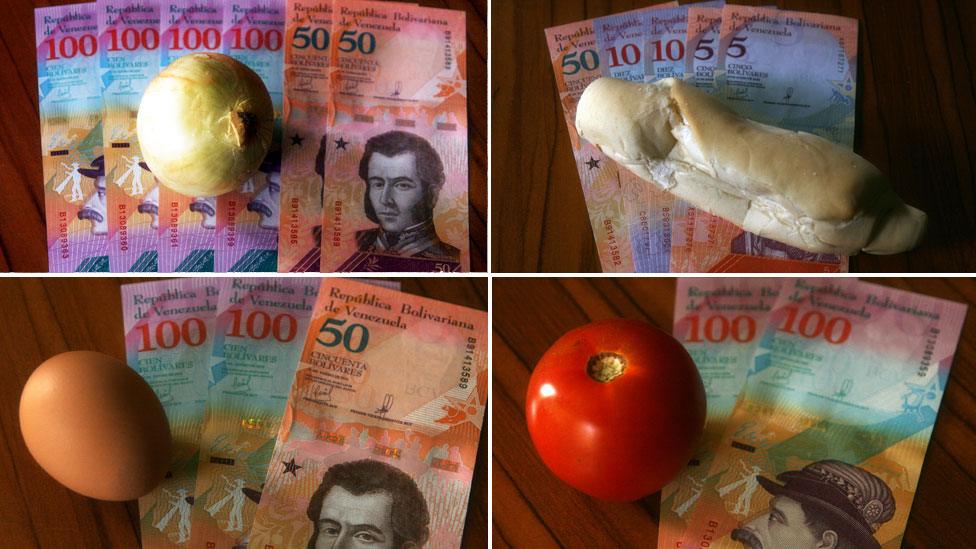Profile: Venezuela's Nicolás Maduro
- Published
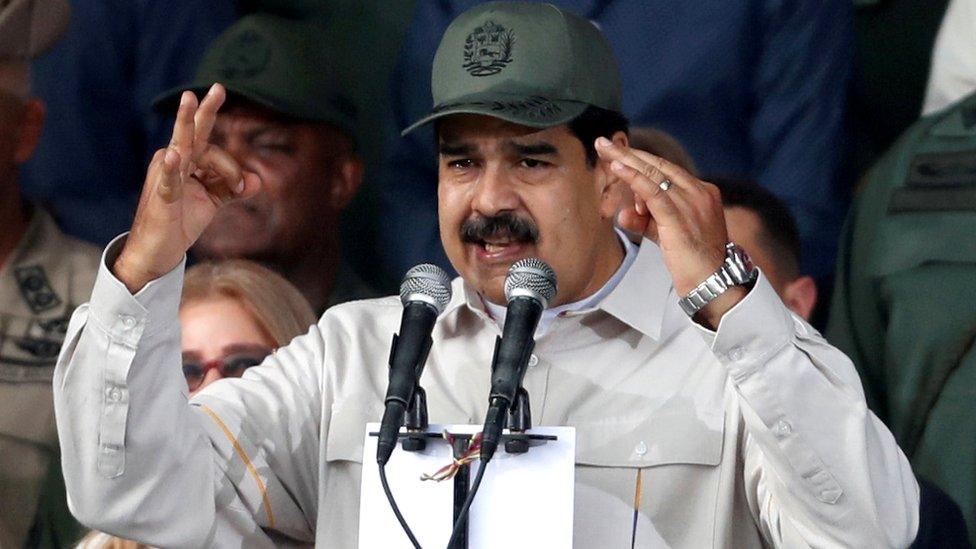
Mr Maduro began his political career as a deputy in parliament in 1998
Nicolás Maduro, a former bus driver with a long career in trade unionism, was first elected president of Venezuela by a narrow margin in April 2013.
A figure who has divided opinion, Mr Maduro was elected to a second term as leader in the highly disputed poll of 20 May 2018 with 67.8% of the vote.
Since taking power, he has been accused of undermining democracy and violating human rights in Venezuela, which is in the grip of a severe economic crisis and has seen inflation skyrocket.
The situation in the country has led to one of the largest mass migrations in Latin America's history.
But Mr Maduro, a political veteran who has been a member of Venezuela's parliament, the National Assembly, and at one point became the assembly's speaker, has blamed the crisis on an "economic war" waged by his opponents.
Venezuela has been in recession since 2014, with triple-digit inflation and shortages of many basic goods.
Despite the outrage from within and beyond Venezuela, he remains a commanding figure there - and not just because of his 1.90m (6ft 3in) stature.
In August 2017, Mr Maduro controversially set up a new constituent assembly with the power to rewrite the constitution, or to bypass and even dissolve the opposition-led National Assembly.
He pitched it as a way of promoting "reconciliation and peace", but critics saw an attempt to strengthen his grip on power.
Mr Maduro was the chosen successor of Hugo Chávez, the founder of Venezuela's "Bolivarian Revolution" - a form of socialist populism with a strong emphasis on social welfare.
He served as foreign minister under Mr Chávez from 2006 until 2013 and assumed the interim presidency upon the death of Mr Chávez on 5 March 2013.
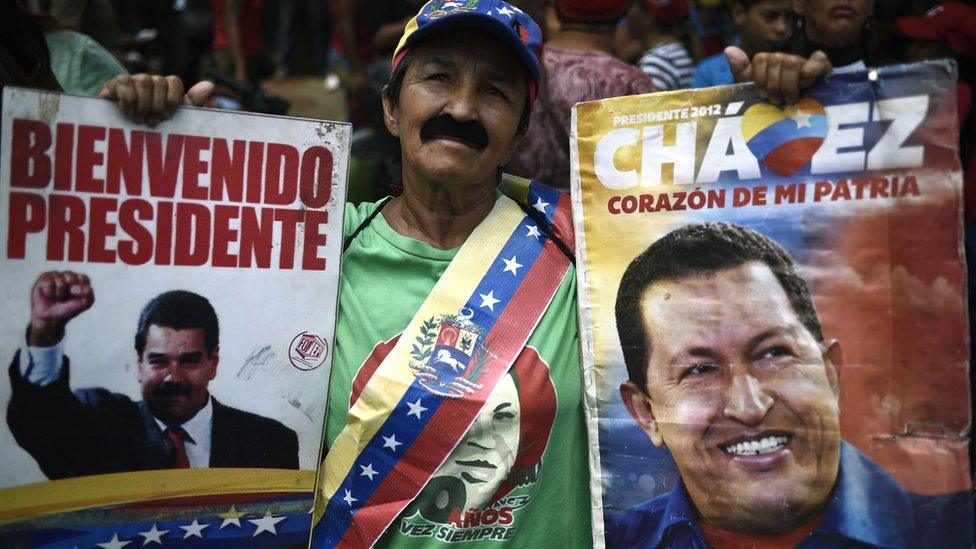
A Maduro supporter holds posters of the president and his predecessor Chávez
Mr Maduro invokes the memory of his predecessor incessantly, quoting Mr Chávez and frequently speaking in front of a picture of the late leader.
Their long and close association stems back to Mr Chavez's imprisonment following his attempted 1992 military coup.
Despite hyperinflation and mass outward migration, Mr Maduro has insisted on the statist economic policies started by Mr Chávez
With a long career in trade unionism, Mr Maduro began his political career as a deputy in parliament in 1998, later becoming vice-president.
His wife Cilia Flores - a prominent lawyer who was part of Mr Chávez's defence team - is also a significant figure in Venezuelan politics, having served as attorney general and president of the National Assembly.
- Published30 April 2019
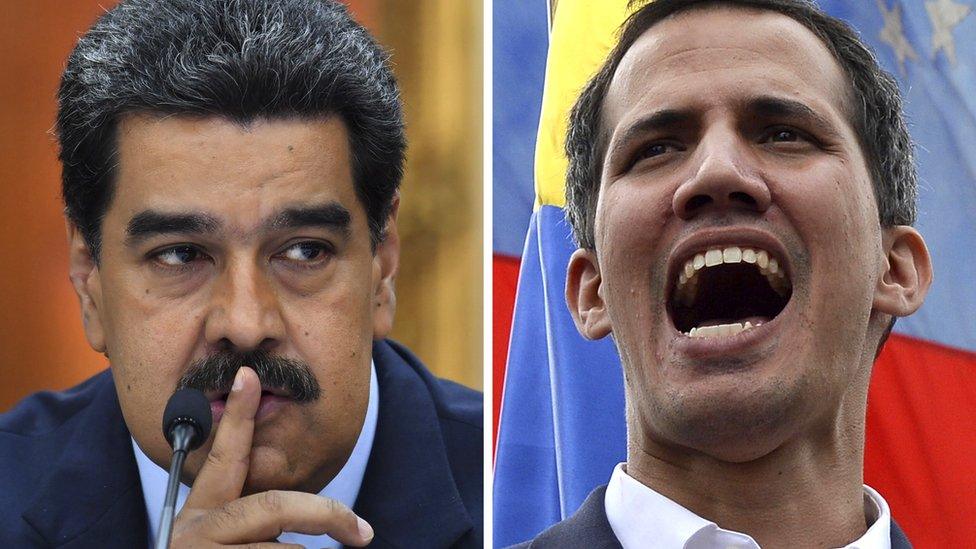
- Published12 August 2021
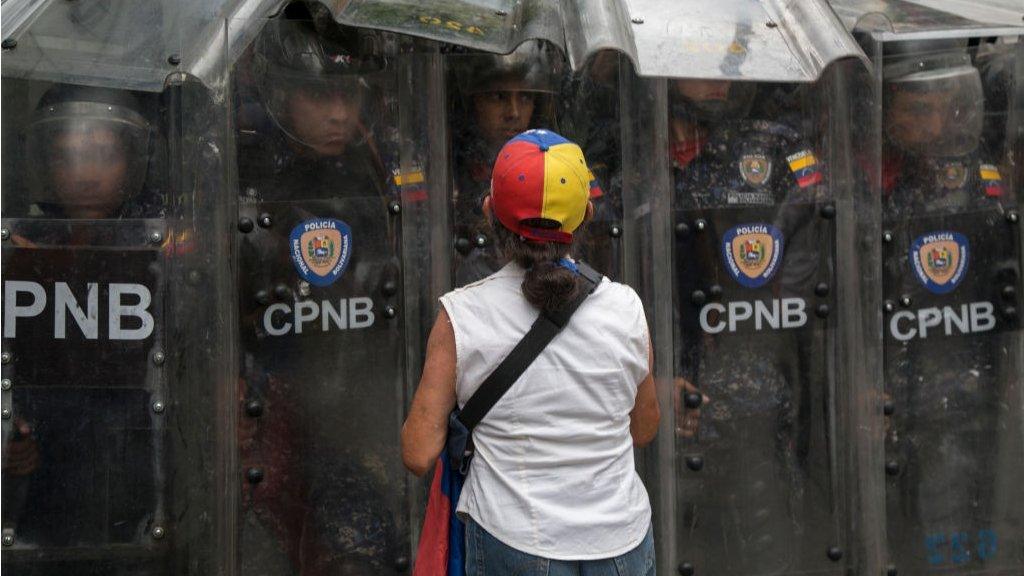
- Published4 February 2019
